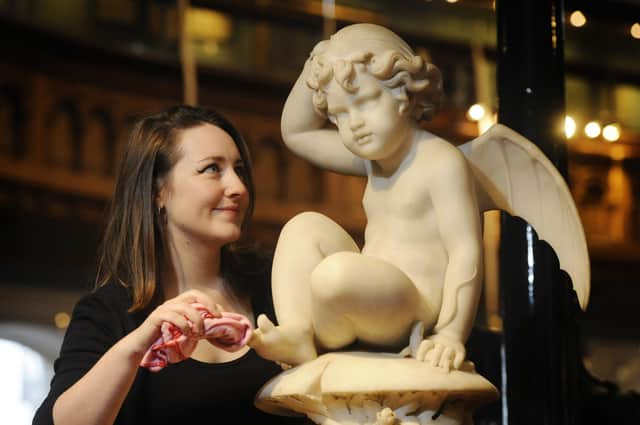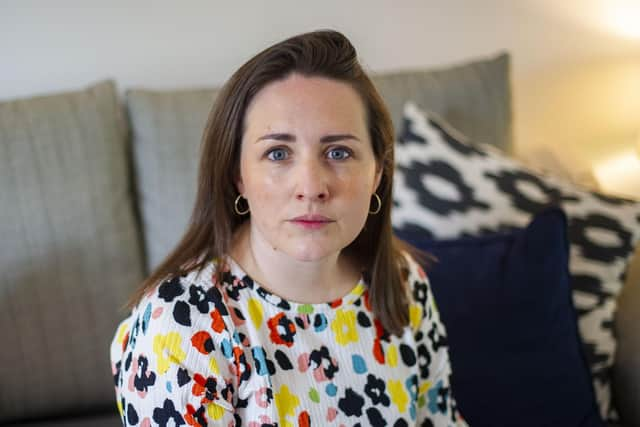Theo Burrell: Antiques Roadshow expert says fellow brain tumour patients are being 'let down' by government research funding


An Antiques Roadshow expert who has an incurable brain tumour says patients are being “let down” by the UK Government – and has backed a charity’s call for increased funding to fight the disease.
Theo Burrell, 36, from East Lothian, was diagnosed with a type of brain tumour known as a glioblastoma (GBM) in June 2022 and was told she would only have three months to live if she didn’t have surgery.
Advertisement
Hide AdAdvertisement
Hide AdHer surgery was successful in extending her life, but Theo was warned that her condition is incurable as there is currently no treatment for GBM brain tumours.


Theo, a senior specialist in fine furniture and decorative arts at Lyon & Turnbull Auctioneers in Edinburgh, is now campaigning alongside the charity Brain Tumour Research to help reach 100,000 signatures on its petition to increase research funding, in the hope of prompting a parliamentary debate.
“When I was told my migraines were in fact brain cancer, I was really shocked and scared,” said Ms Burrell.
“I know what’s coming but, for now, I’m just getting on with things. I went back to work at Lyon & Turnbull last week, it’s been nice to do something normal from my previous life again.”
Brain Tumour Research is now calling on the UK Government to ring-fence £110 million of current and new funding to kick-start an increase in the national investment in brain tumour research to £35m a year by 2028.
The charity wants the Government to recognise brain tumour research as a critical priority, and says the increase in research investment would put brain tumours in line with the spend on cancers of breast, bowel and lung, as well as leukaemia.
“I’ve signed the petition and encourage others to do the same,” said Ms Burrell.
“It’s hard not to feel angry about the whole experience. Brain tumours are so underfunded, and they have such a poor prognosis. Brain cancer seems to be a few steps ahead of us, it’s outsmarting us.
Advertisement
Hide AdAdvertisement
Hide Ad“We can get a man on the moon, but we can’t cure brain tumours; it’s so frustrating that funding is so thin on the ground.
“So many young people get brain tumours, so we need to care for the next generation. Signing the petition is so important to get the 100,000 signatures, otherwise it suggests people don’t care.”
Theo started suffering from such strong migraines in December 2021 that she was unable to bend over or lie down. She visited multiple doctors over the following six months, but none of them knew what was wrong. The pain became so intense that she went to A&E at Edinburgh Royal Infirmary on 7 June 2022, where a scan revealed she had a glioblastoma.
Theo, mum to Jonah, two, said: “I was put on steroids to reduce the swelling on my brain,
and this led to me regaining my appetite. I was also given morphine which meant I wasn’t in pain for the first time in months.
“Physically, I was feeling better but mentally, I was all over the place.”
To sign and share the petition before it closes at the end of October 2023, go to www.braintumourresearch.org/petition
Comments
Want to join the conversation? Please or to comment on this article.